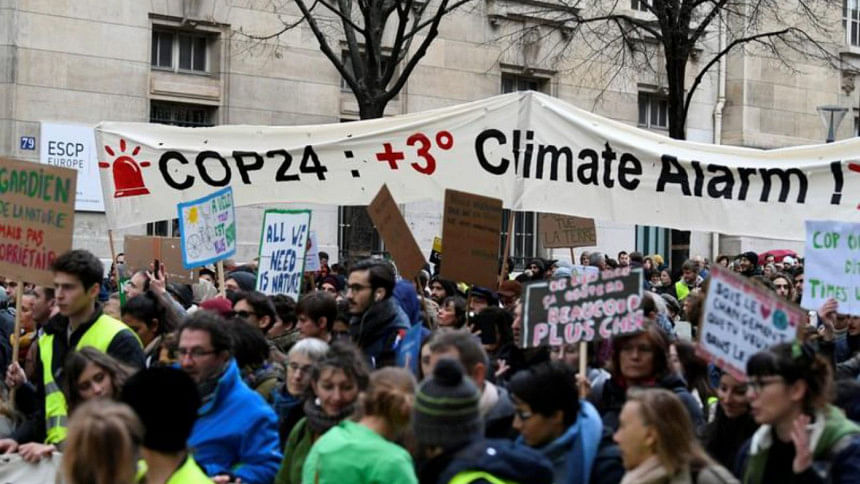COP24 gets political after first week

The first week of the two-week 24th Conference of Parties (COP24) under the United Nations Framework Convention on Climate Change (UNFCCC) being held in Katowice, Poland has just ended with a major political difference between the countries who wish to raise ambitions to take faster action to tackle climate change in light of the recent Intergovernmental Panel on Climate Change (IPCC) Special Report on 1.5 degrees, and those who are associated with fossil fuel interests.
The IPCC report was asked for by the COP in 2015 and was produced by the best scientists around the world. It was then adopted by all governments who are part of the IPCC in October this year. The report shows that there is a very significant difference between a world with a 1.5 degree and a 2 degrees higher global atmospheric temperature. It will affect all countries, not just the poorest. The report also said action was still possible if all countries agree to raise their ambitions for reducing emissions of greenhouse gases. The need is for all countries to be reliant on 100 percent renewable energy no later than 2050.
The IPCC presented their report to COP24 in Katowice last week. Normally it would be a very routine matter for the COP to acknowledge it and take its findings into the COP decision making process.
However in this case it was not accepted and the argument took place over one word: "welcome". The vast majority of countries said they would like to "welcome" the IPCC report. However the US, Saudi Arabia and Russia would not accept that word and would only allow the COP to take "note" the IPCC report. This may sound like a trivial play of word but it signifies a major stand from the fossil fuel interests which are being represented here by Saudi Arabia, US and Russia.
To give an example of how the US is doing that, there are two sets of events being hosted by the US, one by the Trump administration and the second by others including states like California, cities like New York, and companies and universities. This second pavilion has the slogan of "we are still in" the Paris Agreement. It is one of the most popular pavilions at the COP!
On the other hand the official Trump delegation is holding a special event to promote coal as the future which has been paid for by the coal industry in the US. Many countries are asking why Trump has even bothered to send a delegation to the COP if he wants to leave the Paris Agreement? The answer is that he doesn't just want to leave it but rather to prevent other countries from making progress. In this goal he has gained the support of Saudi Arabia and Russia (which is really a trio who are becoming a major global partnership on more than climate change).
So it is now clear that the division of interests is very clear between those who wish to take real action to tackle the global emergency of climate change and those who want to promote fossil fuels sales. It is no longer the case that those questioning the reality of human induced climate change is doing so because of ignorance, but rather that they are deliberately trying to subvert action.
The answers may well lie in Saudi Arabia and Russia joining Trump to leave the Paris Agreement and let the rest of us carry on tackling this global emergency.
Saleemul Huq is director, International Centre for Climate Change and Development, Independent University, Bangladesh.
Email: [email protected]





Comments